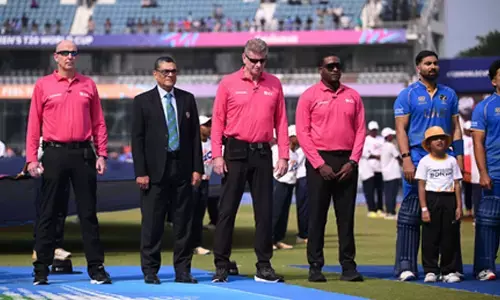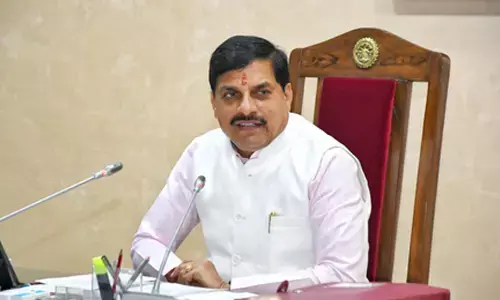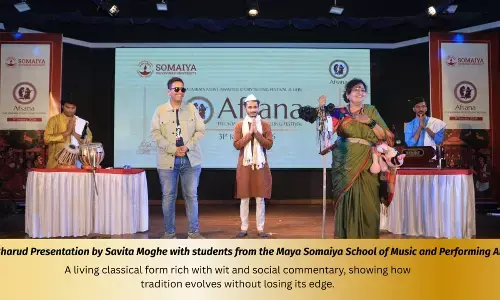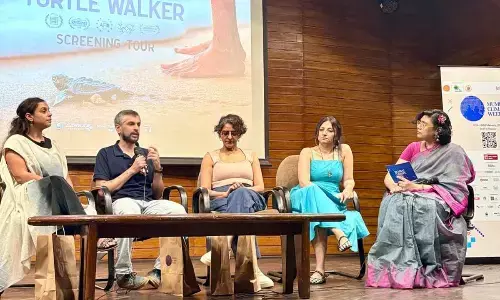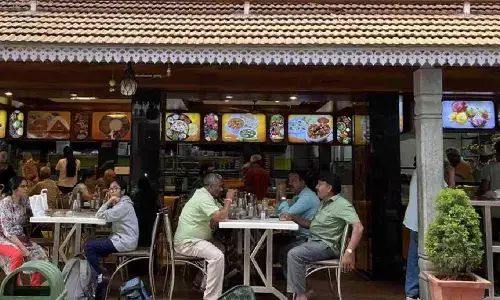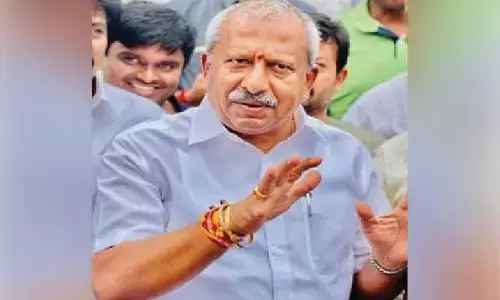Manyam Veerudu rattled British with primitive arms
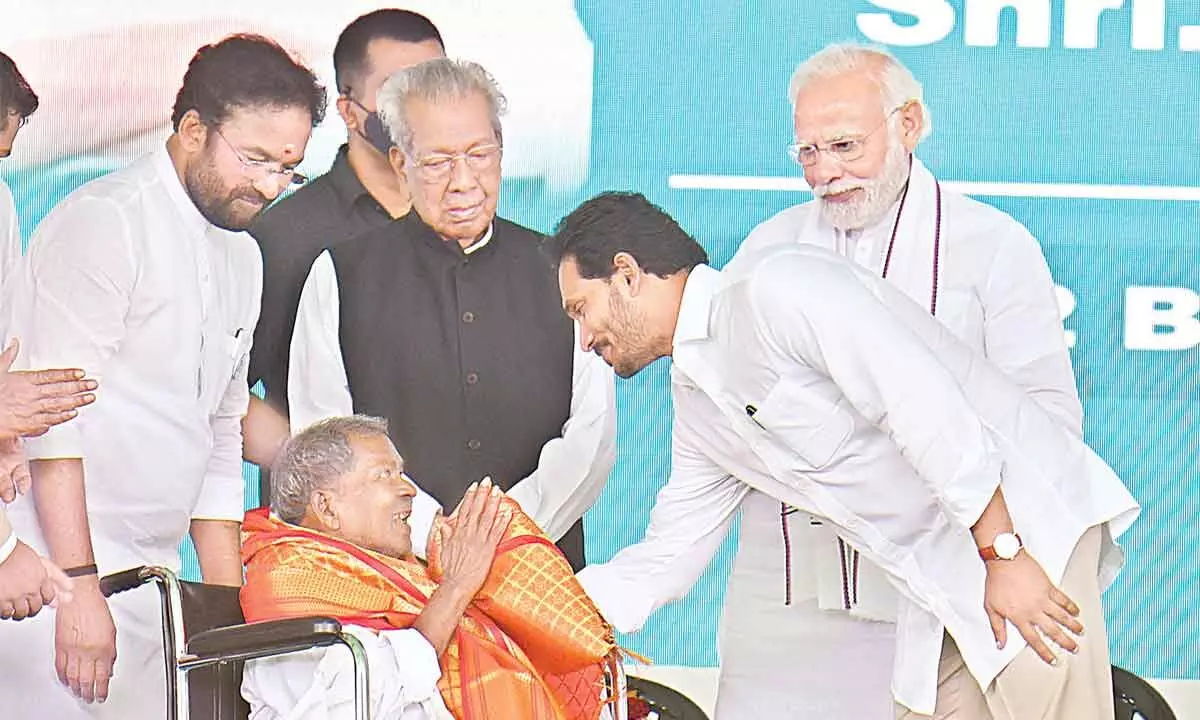
Prime Minister Narendra Modi felicitating Bodi Dora, grandson of Mallu Dora, close lieutenant of Alluri Sitarama Raju, at Peda Amiram in West Godavari district on Monday
- The socio-economic conditions in the country under the British regime, particularly in the tribal areas, deeply moved Alluri Sitarama Raju
- The nation celebrates the centenary of Rampa Rebellion led by him
Bhimavaram: It was a rare honour for Bhimavaram as Prime Minister Narendra Modi on Monday unveiled a 30-ft bronze statue of the legendary freedom fighter Alluri Sitarama Raju on his 125th birth anniversary here.
The 15-tonne statue was carved out at a cost of Rs 3 crore and installed by the Kshatriya Seva Samiti in the municipal park at ASR Nagar in Bhimavaram, as part of the Azadi Ka Amrit Mahotsav celebrations.
The Prime Minister felicitated nephew of Sitarama Raju, Alluri Srirama Raju and Bodi Dora, grandson of Alluri's close lieutenant Mallu Dora. Sitarama Raju was popularly known as 'Manyam Veerdu' (Hero of the Forest).
There is some controversy over his date and place of birth. It is popularly believed that Sitarama Raju was born in Mogallu village near Bhimavaram while other sources say that he was born in village Pandrangi in Bheemunipatnam.
His father Venkata Rama Raju was a professional photographer who settled in the town of Rajahmundry for his vocation. His mother Surya Narayanamma was a homemaker. Similarly some claim that he was born on July 4, 1897 while others say he was born on July 4, 1898.
According to history, the regular patriotic discourse during the freedom struggle had a strong influence on Alluri since his childhood. Following the death of his father, his schooling got disrupted and he is said to have toured western, north western, north and north eastern India. The socio-economic conditions in the country under the British regime, particularly in the tribal areas, deeply moved him.
He organised the local Adivasis in the forest areas along Visakhapatnam and East Godavari districts into a potent force to launch a frontal attack. Thus was born the 'Rampa Rebellion' or the 'Manyam Uprising', in the Rampachodavaram forest area in the erstwhile East Godavari district, which rattled the mighty British forces.
Using the Adivasis' traditional weapons, bows and arrows and spears, Alluri spearheaded many an attack on the British forces and became a thorn in their flesh.
He, however, realised that traditional weaponry was no match against the heavily armed British forces and, hence, planned to snatch the enemy's own weapons. The famed attack on the Chintapalli police station on August 22, 1922, with over 300 revolutionaries was the first in the series, which ended in a haul of firearms. Alluri used to warn the police in advance about the date and time of the attack which left the British stunned. He led similar attacks on Krishnadevi Peta and Raja Ommangi police stations and snatched weapons and armoury in all such attacks. A large contingent of Reserve Police personnel from Visakhapatnam, Rajahmundry, Parvatipuram and Koraput was rushed to these areas led by British officers and, in the skirmish that ensued, two – Scot and Heiter – were killed by the revolutionaries on September 24, 1922, and several others wounded.
The Agency Commissioner J R Higgins had announced a prize of Rs 10,000 on Alluri's head and Rs 1,000 each on his close lieutenants Gantam Dora and Mallu Dora. The British deployed hundreds of soldiers from Malabar Special Police and the Assam Rifles, led by top officers, to crush the movement.
But as they did not succeed, British government deputed T G Rutherford as the new Commissioner in April 1924 to quell the movement. Rutherford resorted to violence and torture to know the whereabouts of Alluri and his key followers.
Alluri finally gave himself up and was martyred on May 7, 1924. He lived only for 27 years.


